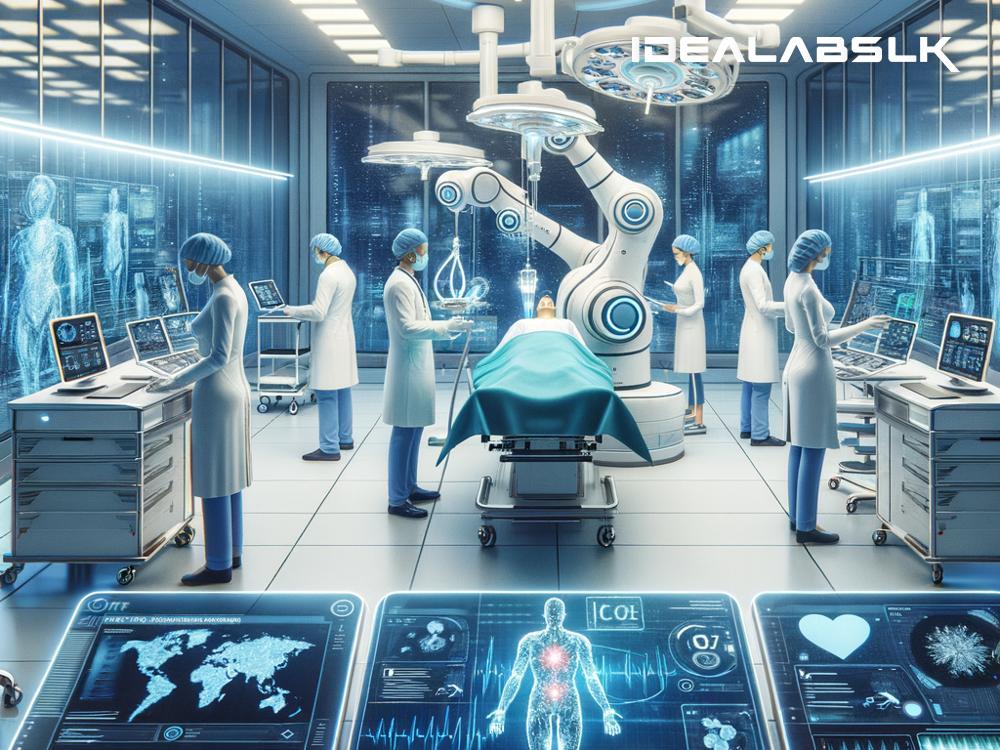The Future of Healthcare Technology: How AI, Robotics, and Data Analytics Will Transform Medicine by 2025
Imagine a world where a robot could perform your surgery with precision beyond human capabilities, where a machine could predict an illness before you even feel the symptoms, or where your doctor could tailor medical treatments just for you based on your genetic makeup. This might sound like something out of a science fiction movie, but it's closer to reality than you might think. By 2025, the landscape of healthcare as we know it could be completely transformed, thanks to advances in Artificial Intelligence (AI), robotics, and data analytics.
Artificial Intelligence: Your Virtual Doctor
AI, in particular, is set to revolutionize the way we approach healthcare. One of the most incredible things about AI is its ability to learn and improve over time. Imagine having a virtual doctor at your fingertips, capable of diagnosing diseases and recommending treatments based on the vast amount of medical knowledge it has learned. This is not just about getting faster diagnoses; it's about getting more accurate ones, too.
Furthermore, AI could help manage chronic diseases in a more personalized and efficient way. For example, apps that use AI could remind patients to take their medication, track their health progress, and even predict potential health issues before they become serious. This way, healthcare becomes not just about treating illnesses but preventing them too.
Robotics: Precision and Efficiency in Surgery
The thought of robots performing surgery might make some people uneasy, but the truth is that robotics in healthcare could lead to safer, more precise, and less invasive surgeries. Robotics technologies have been progressing rapidly, and by 2025, surgical robots will be even more advanced. These machines can perform complex procedures with a level of precision that surpasses human ability, resulting in less pain and quicker recovery times for patients.
Beyond surgery, robots could also take on roles like disinfecting hospital rooms, delivering medication, and even assisting the elderly or patients with mobility problems. This would not only improve patient care but also free up healthcare workers to focus on tasks that require a human touch.
Data Analytics: The Power of Predictive Medicine
With the sheer amount of health data being produced from medical records, wearables, and genetic testing, data analytics plays a crucial role in unlocking the potential of this information. By analyzing this vast pool of data, healthcare providers can identify trends and patterns that humans alone might miss. This leads to what's called predictive medicine – the ability to foresee and prevent diseases before they happen.
For instance, by analyzing your genetic data, healthcare providers can predict your susceptibility to certain diseases and create a personalized prevention plan. Similarly, wearables that monitor your health in real-time can alert you and your doctor to potential health issues before they become serious. By 2025, this kind of proactive healthcare could become the norm, shifting the focus from treating illnesses to maintaining wellness.
Challenges and Opportunities
While the future of healthcare technology is exciting, it's not without its challenges. Issues such as data privacy, ethical considerations around AI and robotics, and the digital divide could slow down progress. However, the opportunities for improving patient care, reducing healthcare costs, and making treatments more accessible and personalized are immense.
To make the most of these advancements, healthcare professionals, policymakers, and tech companies will need to work together. They'll have to ensure that these technologies are implemented in a way that is ethical, secure, and inclusive so that everyone can benefit from the healthcare revolution.
Looking Ahead
As we look towards 2025, the intersection of AI, robotics, and data analytics with healthcare is poised to change the medical landscape in ways we're just beginning to understand. From virtual doctors and robotic surgeons to predictive medicine and personalized treatments, the future of healthcare promises to be more efficient, effective, and equitable.
For patients, this means healthcare that's more personalized, preventative, and accessible. For healthcare professionals, it means more tools at their disposal to provide the best care possible. And for society, it signifies a step towards a future where technology makes healthcare better for all.
In conclusion, the future of healthcare technology is not just about the gadgets and algorithms; it's about how these tools can work together to improve human health and wellbeing. By embracing these advances, we can look forward to a future where medicine is not only about healing the sick but ensuring that people stay healthy longer. As we move towards 2025, one thing is clear: the future of healthcare is bright, and it's digital.

